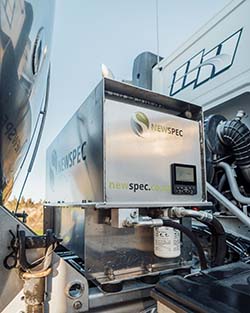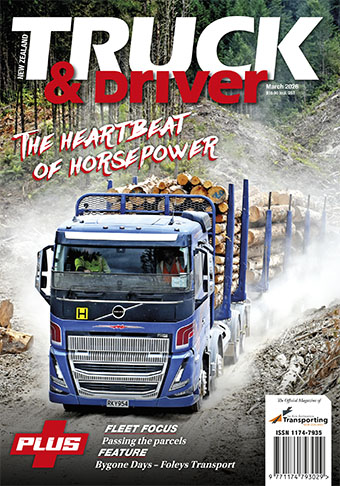
Kiwi Innovation Slashes Dairy Transport Emissions and Fuel Costs
Posted: 26-Jun-2025 |
A groundbreaking, New Zealand-developed electric pumping system is set to transform milk tanker operations, promising dramatic fuel savings, reduced emissions, and significant operational efficiencies for the dairy transport sector.
Developed by Canterbury-based innovator Jeff Naish and his company Newspec, the "Motiva" system is a battery-electric power take-off (PTO) unit that eliminates the need for milk tankers to keep their engines idling during milk collection. This seemingly simple change tackles a major "hidden inefficiency" in the industry, cutting engine running time by 20-25% and saving approximately 500 to 600 litres of diesel per truck, per month.
The inspiration for the system came to Naish during the fuel price spike of 2017–18, when the wastefulness of tankers idling for hours each day became starkly apparent. The solution he developed over five years is a self-contained unit that powers the milk pump electrically. Unlike other electric alternatives, the Motiva system recharges its own battery via the truck's alternator while driving, meaning it requires no external charging stations or depot-based infrastructure—a crucial advantage for operations in rural areas.
The system's effectiveness has been independently verified. An analysis by Dr. Digby Symons of the University of Canterbury confirmed that the battery-electric system offers "significant savings of fuel consumption and total engine running hours" compared to conventional mechanical PTOs that rely on an idling engine. Dr. Symons highlighted the broader benefits, stating, "By avoiding unnecessary engine idling during milk collection, the system not only saves fuel but reduces engine wear and maintenance needs".
Major milk transport operator Hilton Haulage has trialled the second-generation system with results that exceeded expectations. Simon Hand, the company's General Manager of Dairy and Bulk Liquids, called the decision to adopt the technology a "no brainer." He explained, "It reduces cost, it's more efficient and gives us a much greener footprint and our drivers don’t need to change the way they work". Following the successful trial, Hilton Haulage has committed to a wider rollout, with seven units already installed.
With an estimated 700 milk tankers operating across New Zealand, the potential commercial and environmental benefits are substantial. The technology offers a practical path toward decarbonization for a sector under increasing pressure to reduce its environmental impact. While the direct benefits are for transport operators, farmers also gain from a smaller environmental footprint across the supply chain, a factor of growing importance to consumers and regulators.
Newspec is already looking beyond the dairy industry, with commercial trials underway in sectors like utilities and container handling. As Naish notes, the application is universal: "Wherever engines are idling to do mechanical work, there’s a better, cleaner way”. This innovation demonstrates a practical pathway to cleaner heavy transport, proving that meaningful change doesn't have to disrupt workflows, but simply has to make sense.



 + EQUIPMENT GUIDE - FREE
+ EQUIPMENT GUIDE - FREE
